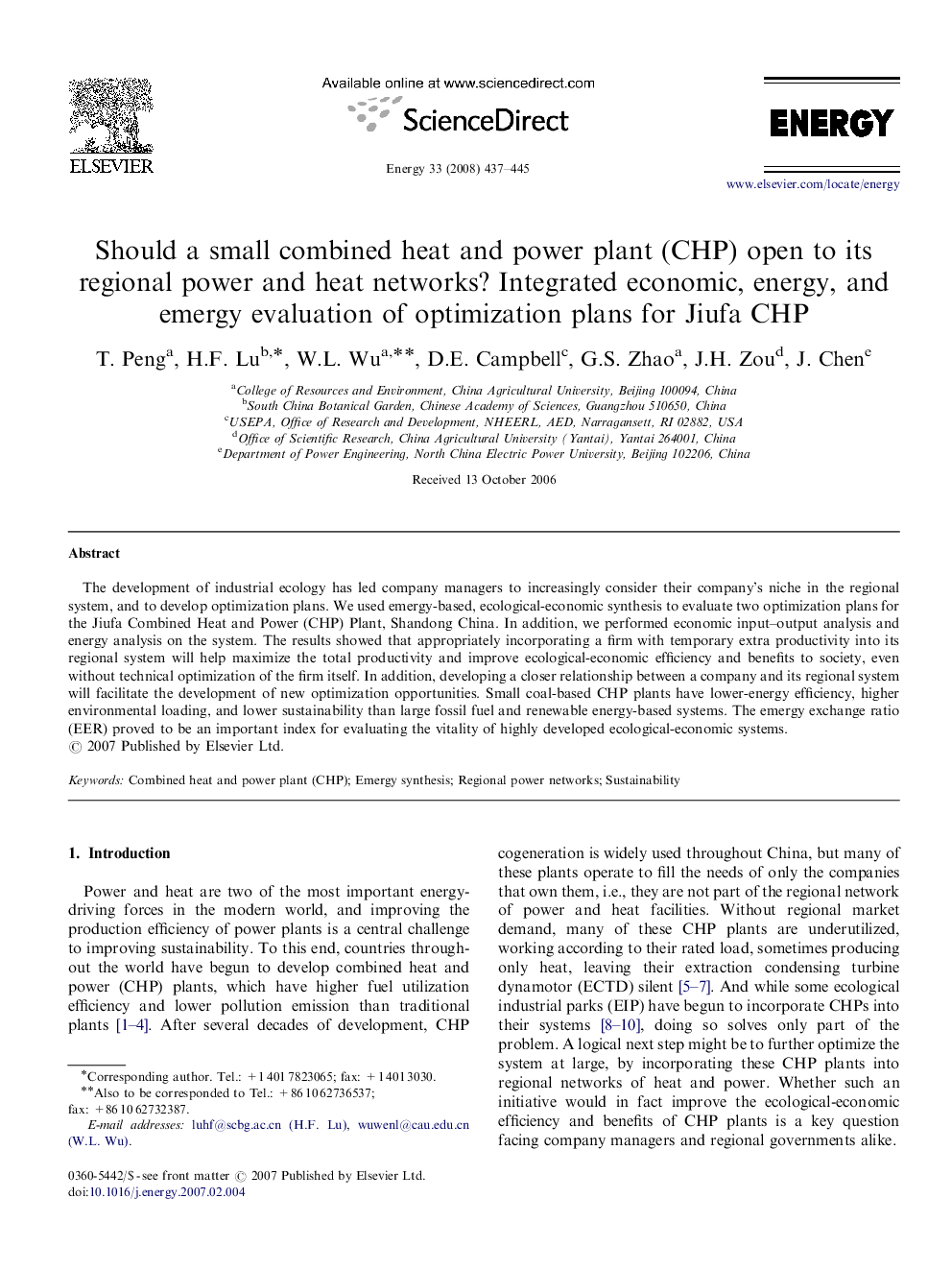| Article ID | Journal | Published Year | Pages | File Type |
|---|---|---|---|---|
| 1735497 | Energy | 2008 | 9 Pages |
The development of industrial ecology has led company managers to increasingly consider their company's niche in the regional system, and to develop optimization plans. We used emergy-based, ecological-economic synthesis to evaluate two optimization plans for the Jiufa Combined Heat and Power (CHP) Plant, Shandong China. In addition, we performed economic input–output analysis and energy analysis on the system. The results showed that appropriately incorporating a firm with temporary extra productivity into its regional system will help maximize the total productivity and improve ecological-economic efficiency and benefits to society, even without technical optimization of the firm itself. In addition, developing a closer relationship between a company and its regional system will facilitate the development of new optimization opportunities. Small coal-based CHP plants have lower-energy efficiency, higher environmental loading, and lower sustainability than large fossil fuel and renewable energy-based systems. The emergy exchange ratio (EER) proved to be an important index for evaluating the vitality of highly developed ecological-economic systems.
